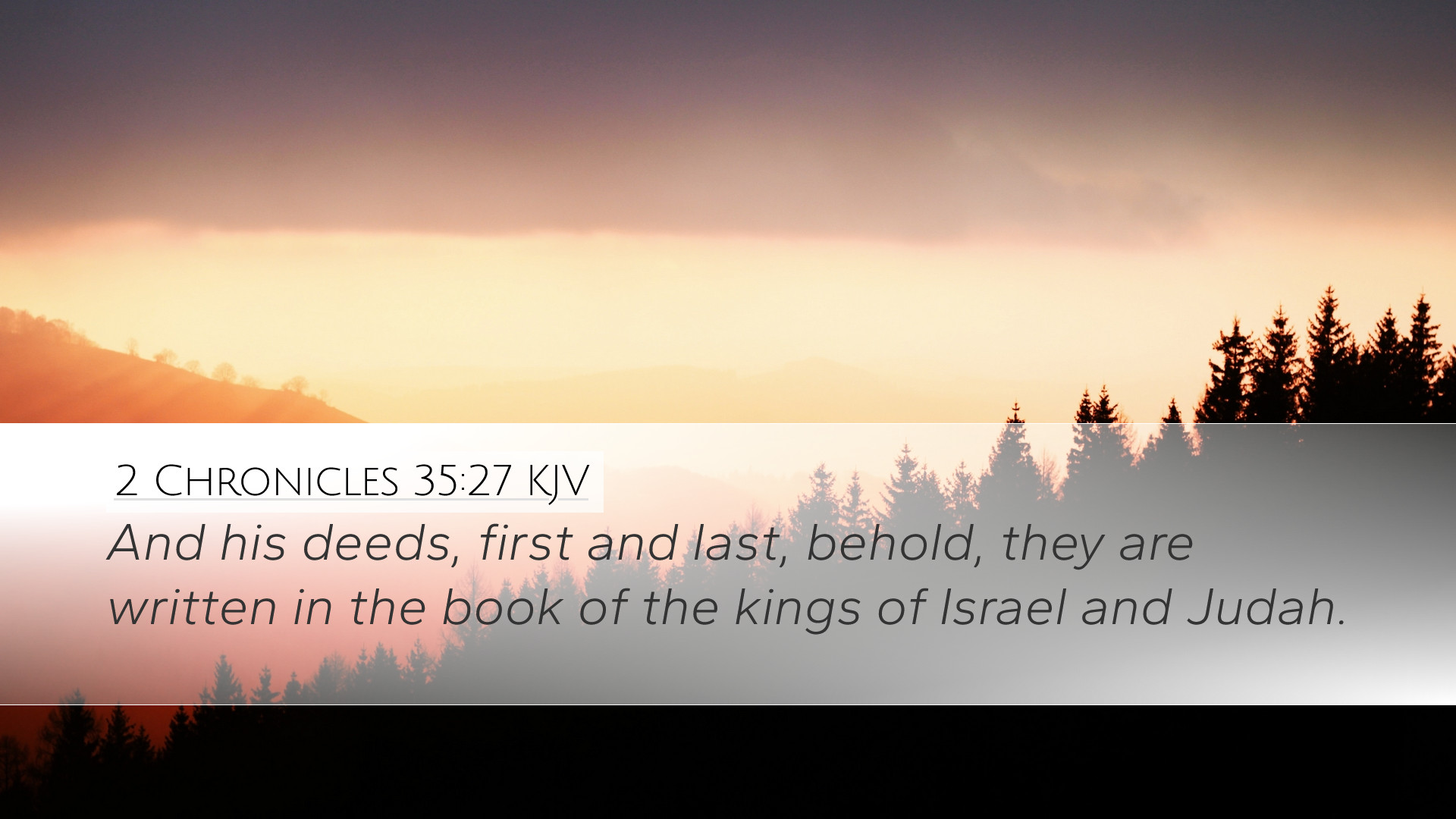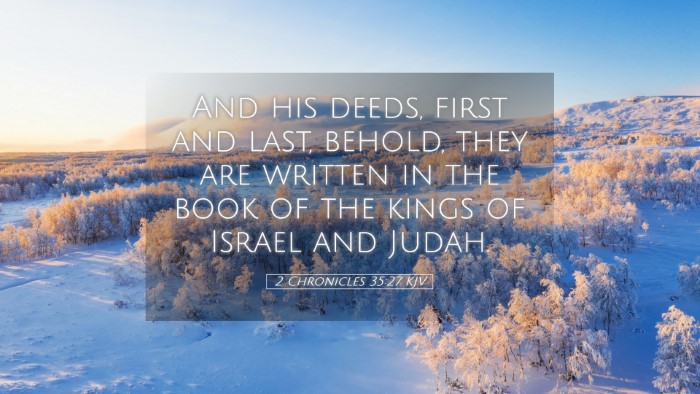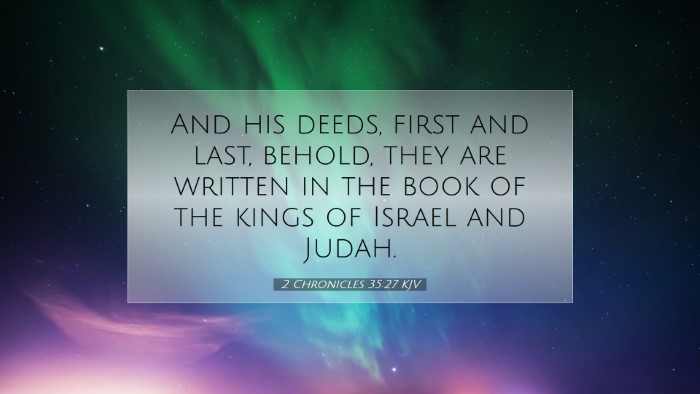Commentary on 2 Chronicles 35:27
Verse Context: 2 Chronicles 35:27 reads, "And his burial was in the sepulchre that is in the garden of Uzzah: and all Judah and Jerusalem mourned for Josiah." This passage reflects the end of the reign of King Josiah, a pivotal figure in Judah's history, whose devotion to God and reforms profoundly impacted the nation.
Historical Background
The reign of Josiah, from 640 to 609 BC, was marked by religious revitalization, a significant return to Yahweh during a time of widespread idolatry. The discovery of the Book of the Law during temple renovations prompted extensive reforms aimed at purging idolatry—an act that included the celebration of the Passover as prescribed in the Law.
Theological Insights
Henry's Analysis: Matthew Henry points out that the death of Josiah was both a tragedy for Judah and a testament to his righteousness. His demise in battle against Pharaoh Necho II was viewed as a consequence of his failure to heed divine warnings, emphasizing the need for obedience to God’s revealed will.
Barnes' Perspective: Albert Barnes emphasizes the sorrow that followed Josiah’s death, suggesting that his genuine commitment to restoring the covenant relationship with God resonated deeply within the hearts of the people. This mourning serves as a reflection of the people’s awareness of losing a king who truly sought God’s favor.
Symbolism of Mourning
The shared sorrow of Judah and Jerusalem is significant in this context. It illustrates a collective recognition of divine judgment following the loss of a godly leader. The mourning indicates not just a personal loss but a spiritual crisis—a turning point where the nation would be tested in the coming years.
Lessons from Josiah's Reign
- Leadership and Responsibility: The role of a leader is crucial in guiding others toward faithfulness. The righteous leadership of Josiah offers a model for contemporary leaders in the church.
- Impact of Reform: Josiah’s reforms highlight the importance of returning to scriptural truth, urging current believers to prioritize the study and application of God’s Word.
- Consequences of Disobedience: The narrative surrounding Josiah reminds us that spiritual disobedience brings consequences, reflecting God’s sovereignty and justice in the affairs of man.
Comparison with Other Biblical Figures
In comparing Josiah’s life and reign with other biblical leaders such as David and Hezekiah, we see a common thread of righteousness, yet Josiah stands out for his youthful zeal and determination to restore true worship, paralleling the themes of reformation seen in Nehemiah's time.
Conclusion
2 Chronicles 35:27 serves as a sobering reminder of the cost of disobedience and the value of godly leadership. For pastors, students, theologians, and scholars, it urges a reexamination of one’s commitment to God and the implications that leadership has on the wider community. The legacy of Josiah transcends time, serving as a profound spiritual call to both repentance and renewal in the life of the believer.


